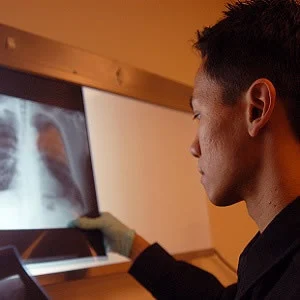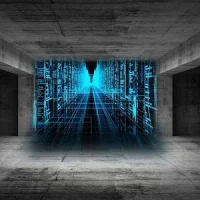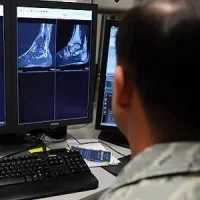Communication skills are essential core competencies that have been associated with improved health outcomes and enhanced satisfaction with care. According to researchers, a communication skills workshop using the experiential learning approach was helpful in improving radiology residents' ability to communicate effectively and resolve conflict in the workplace. Their study, which will appear in the journal Current Problems in Diagnostic Radiology, is available online as an accepted manuscript.
See Also: Physician Burnout: Ways to Improve Radiologist Wellbeing
While interpersonal and communication skills is considered a core competency for radiology residents, these skills are often developed through on the job training or not at all. Traditional educational curricula use a predominantly didactic approach without opportunities for trainees to observe, actively experiment, or reflect on what is learned as a part of the learning process.
The experiential approach has recently been promoted as the preferred way to teach communication skills, with training programmes described in medicine, paediatrics, and surgery. Experiential learning is a powerful tool in which educators purposefully engage with students in direct experience and focused reflection in order to increase knowledge, develop skills and clarify values. Experiential learning is not a new concept and many medical schools in the U.S. have even implemented this approach into their core curriculum in the form of problem-based learning.
For this study, Jason N. Itri, MD, PhD, of the Department of Radiology, University of Virginia, Charlottesville, VA and colleagues developed a one-day communication skills workshop for radiology residents. The workshop consists of interactive Myers-Briggs Type Indicator (MBTI) and conflict management sessions designed to develop interpersonal, communication and conflict management skills through group discussion, role-play, and simulation. The workshop was designed so that all residents were encouraged to participate, challenge, explore, and experiment with new skills and behaviours.
This voluntary workshop took place off-site on a Sunday in September 2015 from 9am to 4pm. There were 31 residents in the training programme, of which 10 could not attend due to vacation or call responsibilities. The remaining 21 residents attended the workshop and received an extra vacation day to be used later in the year. The training session focused on the delivery of specific types of information including difficult diagnoses or "bad news", radiological errors, and radiation risks.
The researchers assessed the perceived impact of this communication skills workshop on radiology trainees. Post-course evaluations were consistently positive regarding the course content and its favourable impact on the individual’s self-perceived interpersonal, communication and conflict management skills.
"Our study demonstrates that this (workshop) is an effective educational initiative to teach important skills to radiology trainees that are not learned well using traditional didactic approaches. Further investment in experiential communication skills training should be considered given the increasing emphasis on patient-centredness and value-based care in radiology," the authors conclude.
Source: Current Problems in Diagnostic Radiology
Image Credit: Wikimedia Commons
References:
Itri JN, Yacob S, Mithqal A (2017) Teaching Communication Skills to Radiology Residents. Current Problems in Diagnostic Radiology, in press. doi: 10.1067/j.cpradiol.2017.01.005
Latest Articles
Radiologists, Patient-centred, value-based care, communication skills
According to researchers, a communication skills workshop using the experiential learning approach was helpful in improving radiology residents' ability to communicate effectively and resolve conflict in the workplace.










